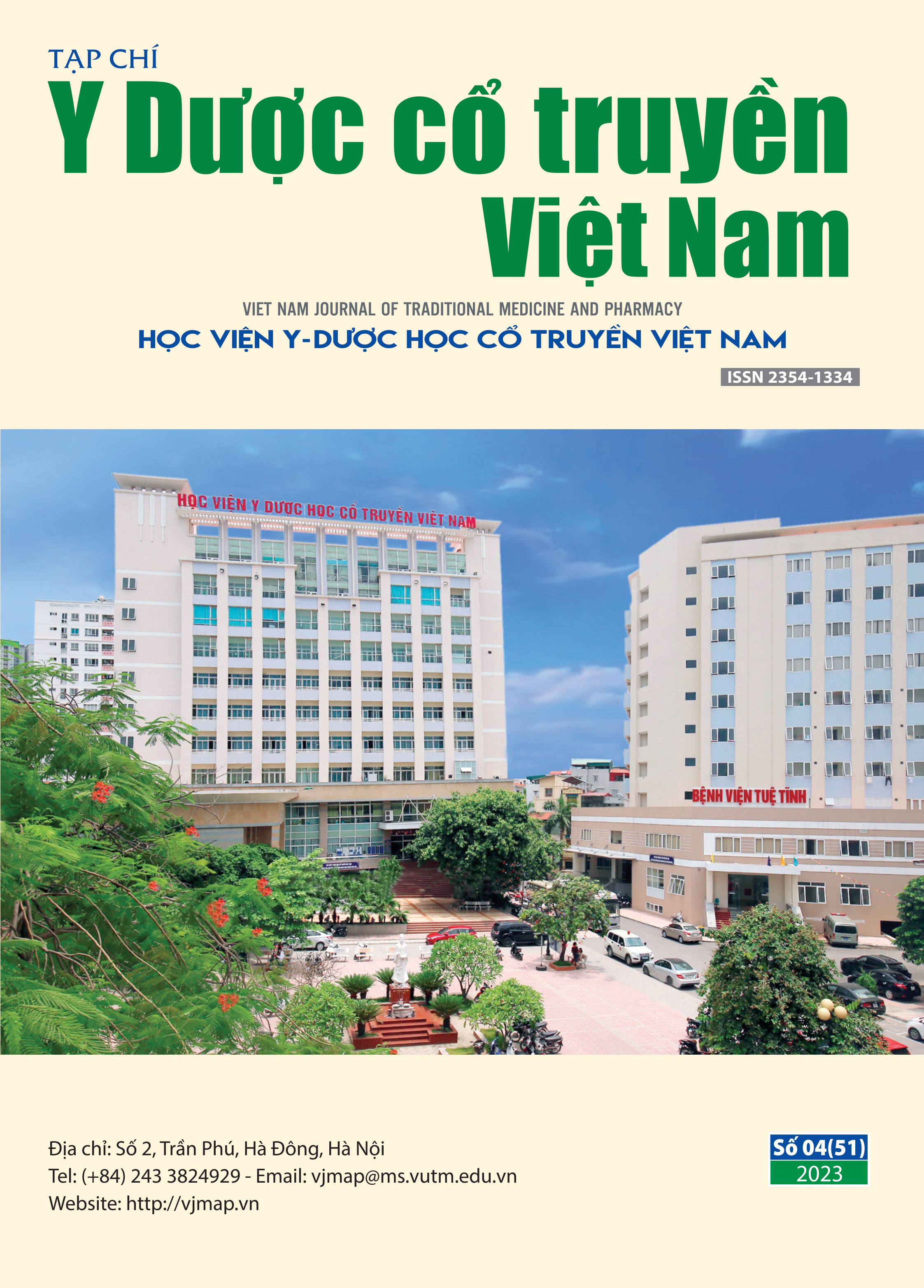Study analgesic effects of basil extracts (Ocimum basilicum L.) on mice
Nội dung chính của bài viết
Tóm tắt
Objectives: To study analgesic effects of basil extracts (Ocimum basilicum L.) on mice.
Subjects and methods: The experiments were conducted according to heat stimulation (hot plate) and needle slide methods. In each experiment, mice were divided into 4 groups of 10 each, in which the negative control group was given distilled water, the positive one took the control drug, and the others were treated with basil extracts at the doses of 2.4 and 7.2 g/kg/day for 7 consecutive days. Mice in the control groups were drunk codeine phosphate 20 mg/kg or aspirin at a dose of 150 mg/kg depending on being in the hot plate or the needle pricking methods, respectively. The research indicators including response time to heat, pain force and pain response time of an individual mouse before and after drug administration were recorded. This study was conducted between October and November 2021 at Hanoi Medical University, Vietnam.
Results: At oral doses of 2.4 and 7.2 g/kg/day x 7 days, basil extract showed better central analgesic effects in the treated groups than that in the control group (p < 0.001), but these pain relief levels were lower than that of codeine phosphate at a dose of 20 mg/kg/day (p < 0.001). In addition, basil extract had better effects on peripheral analgesia in the treated group than that in the control group (p < 0.05 and p < 0.01) and these effects were equivalent to those of aspirin at a dose of 150 mg/kg/day.
Conclusions: The aqueous extract of basil has both central and peripheral analgesic effects in white mice at the dose regimens of 2.4 and 7.2 g/kg/day×7 consecutive days.
Chi tiết bài viết
Từ khóa
Basil, Ocimum basilicum L., extracts, analgesic effects.
Tài liệu tham khảo
2. Negar Jamshidi, Marc M. Cohen. Review Article - The Clinical Efficacy and Safety of Tulsi in Humans: A Systematic Review of the Literature, Evidence-Based Complementary and Alternative Medicine Volume 2017, 2017, 13 pages.
3. Science direct. Basil - an overview, Science direct, 2019, 14 pages.
4. Kiplang’at K.P., Mwangi R.W. Repellent activities of Ocimum basilicum, Azadirachta indica and Eucalyptus citriodora extracts on rabbit skin against Aedes aegypti, Journal of Entomology and Zoology Studies, 1 (5), 2013, 84-91.
5. Opalchenova G., Obreshkova D. Comparative studies on the activity of basil - an essential oil from Ocimum basilicum L. - against multidrug resistant clinical isolates of the genera Staphylococcus, Enterococcus, and Pseudomonas by using different test methods, Journal of Microbiological methods, Volume 54, Issue 1, 2003, pp.105-110.
6. Gerhard Vogel H. Drug discovery and evaluation Pharmacological assays, Springer, 2016, 669-774.
7. Deuis J. R., Dvorakova L. S. Vetter I. Method used to evaluate pain behaviors in rodents, Front Mol Neurosci, 10, 2017, p. 284.

